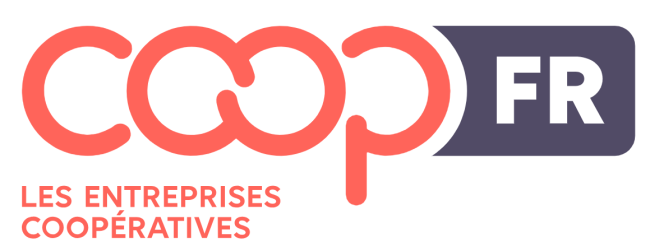CoopFR Examining Gender Equality in the Country’s Cooperative Organizations
…Men Earn 11.2% more than women in co-operatives, compared to 17.9% in the rest of the private economy

French Co-op Apex Organization Coop FR has published a study focused on gender equality in the sector, using research from the National Social and Solidarity Economy Observatory for Coop FR using 2020 data, including Professional Equality Index reports from 90 French co-ops.
The study, Professional equality between women and men in co-operatives, found that gender inequalities are present in the co-op sector – but not to the same extent as in the private sector.
It found that women represent a little less than half (48%) of the 344,410 cooperative jobs, which is close to the distribution of employment in the entire French economy (49% women).
Cooperative jobs are highly concentrated in a limited number of sectors of activity, the report adds, including financial and insurance activities, which correspond to large co-op banking groups and represent more than half of the cooperative workforce.
The distribution of jobs in these sectors differs depending on gender with 64% of “female” co-operative jobs concentrated in financial and insurance activities, while this is “only” the case for 43% of “male” co-operative jobs. In contrast, men are more concentrated in the industrial and construction sectors than women (12% compared to 3% for women).
Figures by sector
The majority (85%) of co-op jobs filled by women are concentrated in five sectors: finance and insurance (64%), trade (12%), enterprise support (7%), non-food businesses or construction (3%) and social action (3%).
The study also reveals that women are more strongly represented in the service sectors than men (three-quarters of the jobs in the social action sector and more than two-thirds in the health sector) while men are over-represented in the “primary” (agriculture) and “secondary” (industries and construction) sectors.
The report attributes this gendered distribution of jobs by sectors of activity to the concentration of women in care-based sectors, activities and professions, extending into the professional environment the gendered distinction of roles in the domestic environment.
The study found that women working for co-ops are more likely to be in employee positions (26.7%); only 8% occupy management professions, as opposed to 28.9% of men, and only 19.6% in higher intellectual professions, compared with 25.9% of men.
In certain sectors of activity, these differences are even more marked. In financial activities, 37.8% of men occupy executive positions compared with only 22% of women.
Related: ICA Gender Equality Committee releases International Women’s Day statement
The working conditions of women and the place they occupy in certain sectors of co-operative activity result in salary inequalities, says the report. Thus, in the financial sector where a majority of women are concentrated, men earn 22.9% more than them.
These inequalities are, however, less marked than in other companies in the sector where men earn on average 59.4% more. In other co-op activities where women are in the minority, wage gaps are also very significant, such as agriculture (18.8% gap) or commerce (19.9% ).
On average, men earn 11.2% more than women in co-operatives, compared to 17.9% in the rest of the private economy.
Age is another factor impacting remuneration. In financial and insurance activities or even agriculture, salary inequalities evolve strongly in correlation with age, while other co-operative sectors see the evolution of salary inequalities weakly correlated with this variable such as the commerce sectors or support for businesses (highly unequal regardless of age) or social action (lowly unequal regardless of age).
The lack of female representation within the workforce can also lead to a lack of female representation at governance level. For example, agricultural and craft co-ops have among the lowest rates of female presidents (1% and 9% respectively) and directors (10% and 11%).
But there are exceptions to this trend. The HLM and the maritime co-operatives see a strong gender mix in their employee workforce but are managed or chaired by a minority of women.
In SCOPs (worker co-ops), there are almost as many administrators as employees, a result of both the organisational nature of this type of co-operative and internal actions carried out by the co-operatives for greater equality.
Yet, according to the study, inequalities are much less present on the scale of the same type of position, individual remuneration policies or means granted to the equal promotion of employees in the same company.
Many co-ops are actively trying to address gender inequalities through specific tools and campaigns, some of which are mentioned in the report. They include Elles du groupe BPCE, a network bringing together more than 450 female executives along with the 30 diversity networks from the BPCE Group’s establishments, both in France and internationally; and Elles de la Coop, a network of co-op managers promoting female representation within the decision-making bodies of agricultural co-operatives.
Another example is Crédit Mutuel, which runs a training course for management positions with an obligation of gender parity within promotions. The financial co-op also offers training to raise awareness more generally about issues of gender equality and combat gender-based and sexual violence, as does Crédit Coopératif, another financial co-op.
Other co-ops adopt specific policies to strengthen parity or support member co-operatives in deploying actions in favour of professional equality. This is the case of Enercoop Normandie, where the board of directors was selected in 2017 by drawing lots in an attempt to ensure gender parity.
Similarly, Triangle, a co-op of artisans from Indre-et-Loire, has set up Femmes Artipôle which facilitates female members’ involvement in the life of the co-operative, including within the board.
How do co-ops fare in the Professional Equality Index?
Since 2018, French companies with over 50 workers have been required to measure and publish their results concerning pay differentials, using the government’s professional equality index. The results must be submitted via a portal, which gives them a score of up to 100 points. When the result is below 75 points, companies are obliged to put in place relevant corrective measures to address the issue within three years.
Coop FR’s study found that the median co-op professional equality index is 88 out of 100, above that of the economy as a whole (87) and varies according to the size of the organisation.
The research also found a correlation between the size of co-ops and their index rating. Co-ops that are SMEs have a median index (80.5 out of 100) lower than that of mid-sized co-op enterprises (85) and large co-ops (89). The median professional equality index was 89 out of 100 for the 40 co-ops with 1,000 or more employees having declared their index in 2020.
Female representation in a sector also impacts how co-ops perform. The study found that sectors with more female employees have the best results: financial, insurance and legal activities with a score of around 91, or even 92.5 out of 100. Food industries scored 83, forestry and logging 83, and food industries 84.5.
The study forms part of Coop Fr’s pledge to promote equality between women and men formalised in 2019 with the adoption of Charter of commitments on gender equality. Coop FR also participates in the work of Gender Equality in the ESS Commission of the ESS Higher Council.

